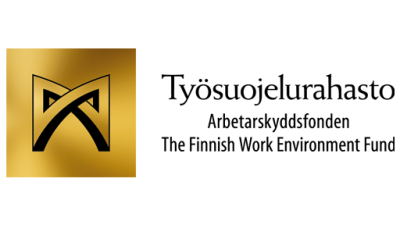Project
Työstä palautuminen luontokokemusten kautta – mennäkö metsään vai virtuaalimetsään?
Project sponsors
The Hybrid Nature project examines psychological and physiological recovery from work in nearby nature and virtual nature. The aim of the project is to produce timely research data on how recovery can be supported by means of virtual nature tourism services among employees doing remote or hybrid work.
The project is carried out by the Institute of Rehabilitation and the School of Business of Jyväskylä University of Applied Sciences. The project is funded by the Finnish Work Environment Fund.
Recovering from work in nearby nature and virtual nature is examined through multidisciplinary perspectives of health, wellbeing, and tourism. Recovery is analysed with qualitative and quantitative methods including Firstbeat Life measurements, diaries, interviews, and surveys. This multilevel data provides information on physiological and psychological recovery in different kinds of natural environments. The results can be used in workplaces to develop operating models to promote wellbeing in remote and hybrid work.
The study participants who do remote and hybrid work are given an opportunity to test how their bodies and minds recover during visits in the nearby and virtual nature after a workday.
In the first week of the research period, employees recovery is observed during their typical working week. In the second and third weeks, employees test virtual nature trips and visit a nearby nature area. In the fourth week, employees take part in group interviews to share their experiences on recovery during the visits and to discuss the areas of development.
Our research team gladly answers all your questions.
Contact person: Katriina Hyvönen (Research Leader, Senior Researcher), [email protected], +358 (0)50 5170986
Project results
The participants in this research (N=57) worked in remote or hybrid work. The research was conducted as a four-week cross-over trial in which the participants were randomised to virtual nature trips or nearby nature visits after the working day. There were in total three four-week cycles which took place from March to June in 2023. During the first week of the trial, the participants' recovery in their typical working week was investigated (control phase). After this, participants were randomly assigned to two one-week intervention phases (virtual nature trips and nearby nature visits). Focus group interviews were conducted during the fourth week of the research cycle. Psychological recovery, occupational wellbeing, work conditions, nature experiences, as well as demographics and feedback from research participation were collected with electronic surveys. Physiological recovery was measured with Heart Rate Variability and electronic diary with questions related to physiological recovery, stress, overall strain, sleep, and physical activity.
The research results indicated that the participants reported more mastery experiences during the weeks they were doing nearby nature visits than during the control week. Mastery experiences is a dimension of psychological recovery experiences which is related to learning new skills, challenging oneself and gaining new perspectives. In addition, some participants reported increasing daily occupational wellbeing when doing nearby nature visits. Nearby nature visits can be particularly useful when one is under higher work pressure.
Nature experiences in virtual and nearby nature can provide good options for recovery during the working day as well as after work. The research results give new information about how remote and hybrid employees' recovery can be supported through virtual travel services and what kind of differences there are in physiological and psychological recovery in virtual and real nature. The results are integrated in previous research in occupational well-being and environmental psychology to highlight the strategies for promoting work recovery through nature experiences. With these strategies, workplaces can design the wellbeing effects of nature as a part of daily work.
